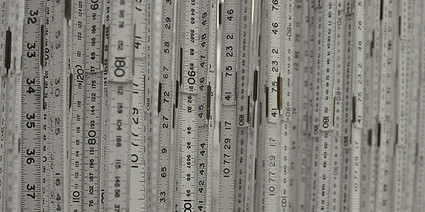
July 27, 2012, by ICCSR
What gets measured gets managed? Examining the impact of external CSR metrics
The number of popular ratings and rankings that measure various aspects of CSR continues to grow. A survey conducted by the consultancy SustainAbility in 2010 identified 108 different CSR ratings and indices, of which only 21 existed in 2000 (SustainAbility, 2010).
A key driver in this growth is the Responsible Investment (RI) industry, which uses the data provided by these metrics to identify suitable investment opportunities. Responsible investment strategies, which were mainly confined to church and charity investors 20 years ago, are increasingly being taken up by pension funds and other institutional investors, and now represent an estimated 10% of the European asset management industry according to industry association Eurosif.
The stated goals of most CSR ratings, rankings and indices are twofold: they want to measure and compare the CSR performance of companies accurately, whilst at the same time they seek to encourage companies to improve their CSR performance by providing more transparency. But how can these external metrics encourage companies to improve their CSR? For my doctorate I undertook a case study of the FTSE4Good Index to see how this might work in practice.
The FTSE4Good Index Series was launched in 2001 to measure up the environmental and social performance of companies listed on stock exchanges worldwide. FTSE has devised a dual strategy to manage the Index: it raises the bar for company inclusion through the introduction of new or stricter inclusion criteria, and then extends an invitation for dialogue and engagement to companies under threat of exclusion from the Index for not meeting the criteria.
Between 2003 and 2009, 63% of companies that engaged with the Responsible Investment team at FTSE improved their CSR policies, management systems or reporting. The Index is used to signal ‘good CSR’ by many of the companies included in it, and they’ll often ensure their CSR reporting and accounting systems are developing in line with the inclusion criteria, to ensure they don’t get excluded from the Index. Perhaps somewhat counterintuitive, index inclusion and the process of engagement with the FTSE Responsible Investment team was found to be particularly helpful for companies that have less well developed CSR practices, as they become the main targets of the engagement process.
The increase in the number of CSR indices, rankings and ratings provides opportunities for many companies raise the profile of CSR in general. But it may also lead companies adopting a more critical, reflexive stance towards these metrics as they weigh up the costs and benefits of cooperating with the many requests for information. This in turn will have consequences for all CSR ratings, because the participation of companies in the measurement and rating process is key to establishing credible metrics. Ultimately, this study of the FTSE4Good Index shows that what can be measured and what ought to be measured needs to be balanced carefully.
Postscript 18/09/2012: A summary report is available here.
By Dr Rieneke Slager, Lecturer in Strategy and Sustainability, Nottingham University Business School.
Image taken by Nick J Webb reproduced under creative commons license 2.0. Source: http://www.flickr.com/photos/nickwebb/2973525619/
No comments yet, fill out a comment to be the first

Leave a Reply